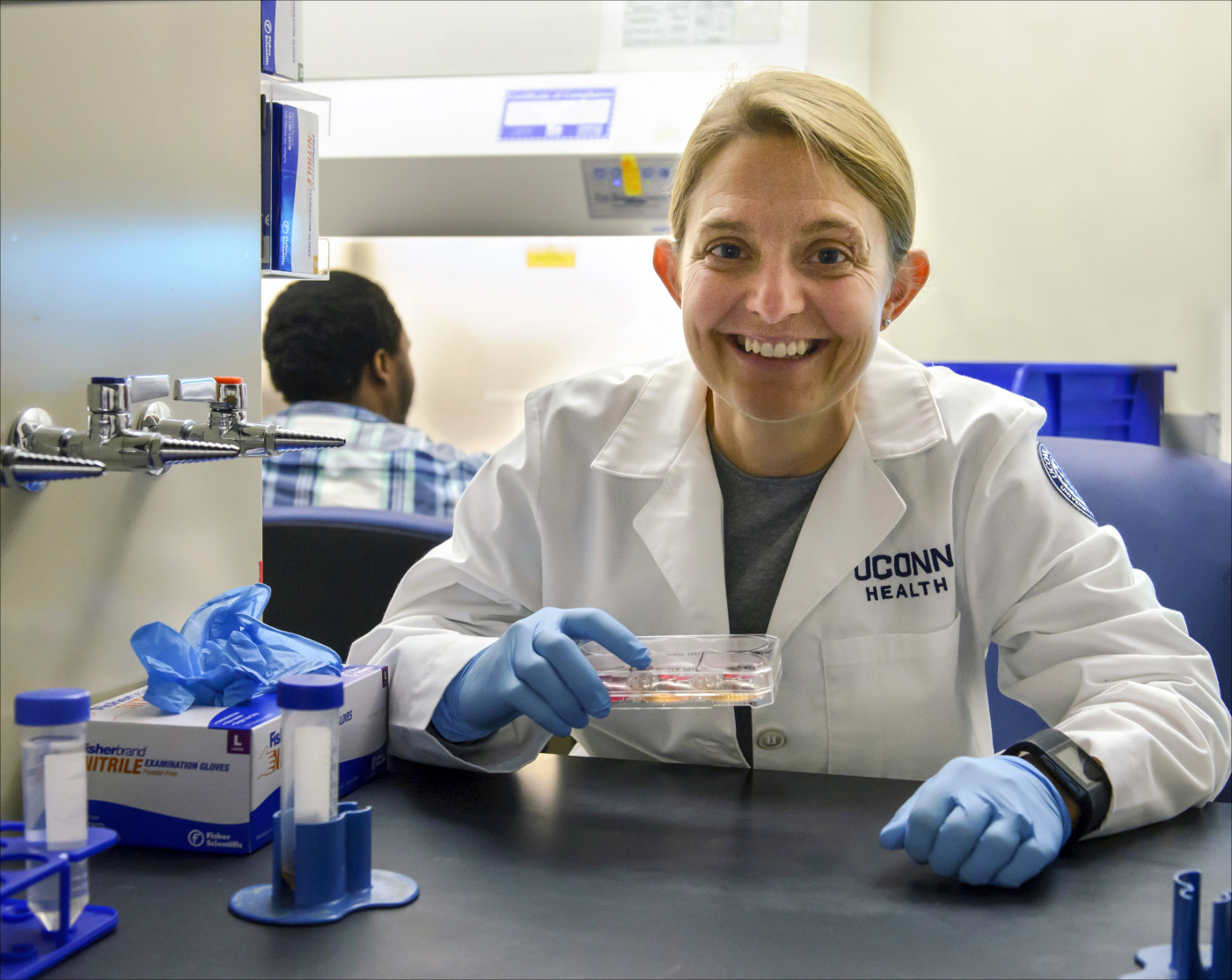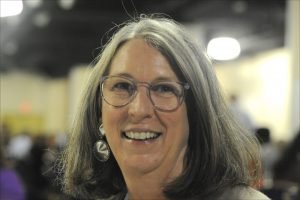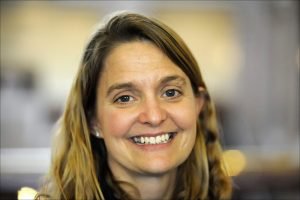Two Angelman Conferences Planned for August on UNC Chapel Hill Campus

Dr. Stormy Chamberlain. (Photo by Janine Gelineau/UConn Health Multimedia Services)
Two organizations that specialize in Angelman syndrome have scheduled back-to-back conferences at the University of North Carolina (UNC) at Chapel Hill early next month to discuss emerging research on therapies for the disease.
Both events take place at the Carolina Inn, which is on the UNC campus in Chapel Hill, North Carolina.
The first conference is scheduled for Aug. 5, and is sponsored by the Angelman Biomarkers and Outcomes Measures (A-BOM) Alliance. Attendance at the biennial meeting is by invitation only, according to Terry Jo V. Bichell, PhD, the alliance’s director and scientific officer.
“The Angelman field is incredibly exciting right now, as many new treatments move toward human trials,” Bichell told Angelman Syndrome News in an email from A-BOM’s Nashville headquarters. “These treatments could be life-changing, but improvements might be subtle and hard to measure at first. If a switch clicks on in the brain, how long would it take for neurons to connect, form networks and change behavior? How long would it take before we could see a difference in the life of someone with Angelman syndrome?”
For example, she said, what if a new treatment for the genetic disorder improved sleep, but not learning and memory? Or if a therapy helped cognition, but couldn’t prevent seizures?
“We need to know how to measure these changes separately, and whether or not they would make a meaningful improvement in the lives of people with Angelman and their families,” she said. “If a good new drug was working, but we weren’t measuring the right thing — or we weren’t measuring it long enough — that would be tragic.”
The keynote speaker at A-BOM’s Aug. 5 meeting is Maria Luisa Escolar, MD, who established the Program for Neurodevelopmental Function in Rare Disorders at UNC in 2000. Escolar — an expert on neurogenetic disorders — will speak on biomarkers and outcome measures that work well for such diseases.
Also on the agenda are a series of six-minute “lightning presentations” by some of the world’s top Angelman experts, followed by a three-hour brainstorming session. The goal, Bichell said, is “to leverage the amazing brain power in the room to come up with a strategic plan for finding the very best biomarkers and outcome measures for Angelman.”
Registration still open for ASF’s Aug. 6-7 meeting
The second event, set for Aug. 6-7, is Angelman and Dup15q Syndromes: Shared Pathways to Discovery. The symposium “allows for the sharing of unpublished work, which leads to conceptual discussions with an outstanding community of researchers and clinicians,” according to the Angelman Syndrome Foundation (ASF).
So far, 119 participants — mostly U.S. scientists but also people from Australia, France, Ireland, Japan and the Netherlands — have registered, said Stormy J. Chamberlain, PhD, chairwoman of ASF’s scientific advisory committee.
“Our symposium is the premier research symposium for Angelman syndrome and Dup15q syndrome research,” Chamberlain, an assistant professor of genetics at the University of Connecticut, said in an email. “Topics cover everything from basic biochemistry of UBE3A function to clinical studies of anxiety and seizures to biomarkers for use in potential clinical trials for both disorders.”
Registration for the two-day conference costs $325 (or $175 for students).
The event is co-hosted by the Chicago-based Dup15q Alliance and is underwritten by several corporate sponsors including Ovid Therapeutics, Roche, Ionis Pharmaceuticals, Takeda, Biogen, and Vertex.
Speakers on the first day include Laura Mamounas, PhD, program director at the National Institutes of Health’s National Institute of Neurological Disorders and Stroke (NINDS); Audrey Thurm, PhD, of the National Institute of Mental Health, speaking on measuring meaningful change in individuals with intellectual disability; Gail Mandel, PhD, of Oregon Health and Science University, discussing Rett syndrome; and Yong-Hui Jiang, MD, PhD, of Duke Institute for Brain Sciences, discussing novel therapies for Angelman syndrome, among others.
Day 2 features several other speakers, namely Gustavo Martínez-Noel, PhD, of Harvard Medical School, presenting data about the impact of specific mutations in Angelman; Laura Hiruma, PhD, of the UNC Carolina Institute for Developmental Disabilities, speaking about sleep patterns in Angelman patients; and James Fink, PhD, University of Connecticut Health Center, discussing data on chromosome 15q-associated neurodevelopmental disorders, among others.
Speakers at the congress were selected from the many scientists who submitted abstracts to an organizing committee comprising Angelman and Dup15q researchers.








